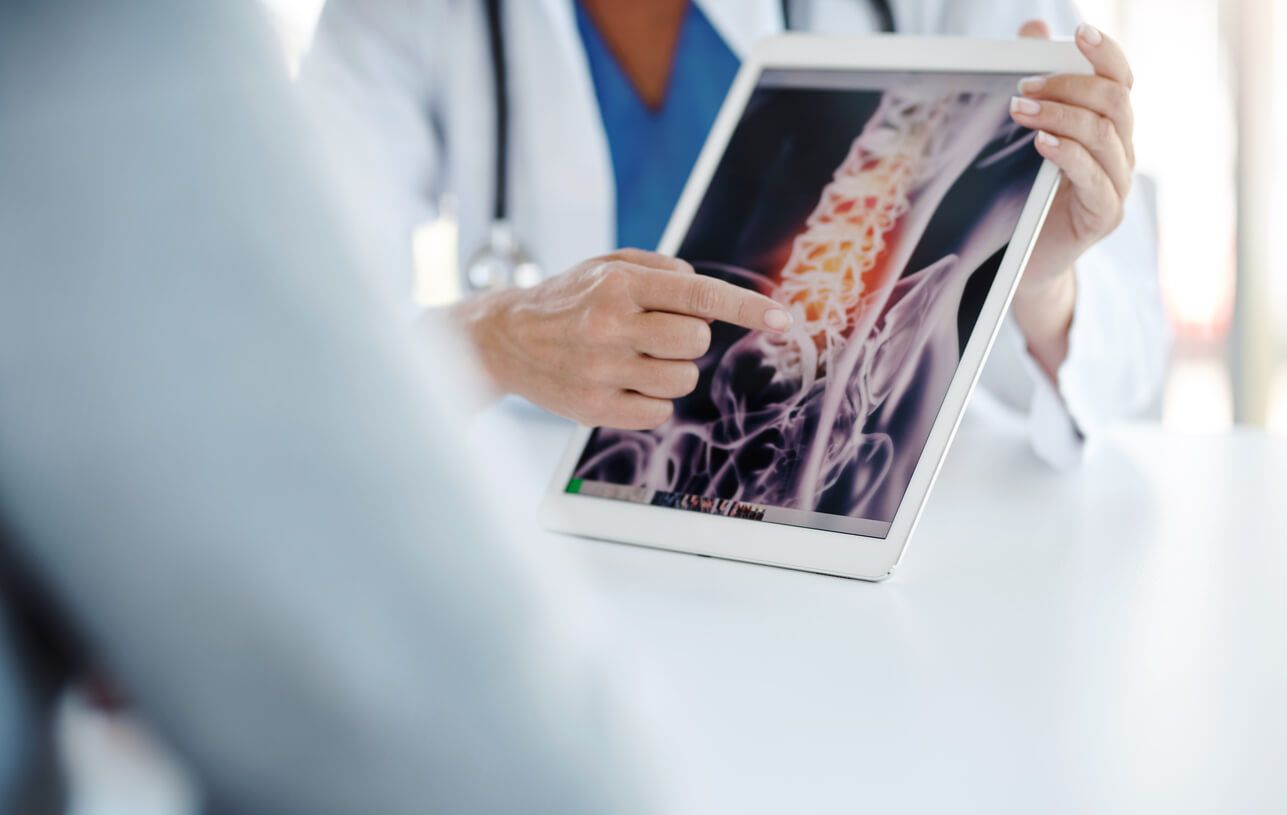Back pain is one of the most common conditions in the world.1 Back pain affects people of all ages and backgrounds, but you don’t have to accept back pain as an inevitable or the result of aging. There are many lifestyle choices you can make that can lessen or even eliminate the pain you have, while also reducing your risk of suffering from back pain—or poor spine health—in the future.
The Importance of the Spine
There are many parts of the body—like the brain or heart—that can be considered “most important,” and the spine makes a pretty good case, too. The spine not only provides physical support for your body but also protects the spinal cord, which acts as a pathway for messages sent between your brain and body. If your spine is in an unhealthy state, you risk not only pain but also any number of medical conditions.
You Can Improve the Health of Your Spine!
It’s true that certain spine conditions are inherited or the result of an accident or another disease or illness, but there are many things you can do right now to improve your spine health—which will also lead to an improvement in your health overall.
Quit smoking—Most people know that smoking impacts the heart and lungs, but it also directly affects your spine health. A 2017 study determined that smokers are much more likely than nonsmokers to need spinal surgery at some point in their lives.2
Exercise and maintain a healthy weight—If you’re overweight or obese, the excess weight can put an additional strain on the ligaments, tendons, and muscles in your lower back. With both exercise and a sensible diet, you can reduce that strain as well as the risk of lower back pain. Physical therapy or a session of massage can also keep your spine feeling limber.
Sleep in a spine-friendly position—Lying in a horizontal position may take pressure off your spine, but some sleep habits can do more harm than good. Both Mayo Clinic3 and Cleveland Clinic4 note that sleeping on your stomach is not recommended because of the strain on the spine and neck. Some recommended sleeping positions include:
- Sleeping on your side, including with a pillow between your legs while your legs are pulled slightly toward your chest—and make sure your chin isn’t tucked down, which could strain your neck
- Sleeping on your back, with a pillow under your knees and a rolled towel under the small of your back, if you need the extra support
- Sleeping on your stomach—if it’s hard to sleep in a different position—but with a pillow under your stomach and pelvis to take the strain off your spine
Comfortable footwear—If you’re wearing the wrong shoes, each step you take can increase the severity of your spine pain. Look for shoes that not only feel comfortable on your feet but also have moderate heel height and provide enough cushioning and arch support.
Stand up straight—Good posture does more than make you look professional. Keeping your head up and your back straight—and avoiding slouching—can reduce stress on your spine.
Embrace ergonomics—Simple changes to the way you sit, work, and use technology can help you avoid certain kinds of back pain. Just like when you’re standing, try not to slouch, and keep your head up. If you use a computer, make sure the monitor, keyboard, and mouse are positioned so you don’t have to stretch, bend, or twist uncomfortably. If you use a phone often, consider a headset or headphones so you don’t have to bend your neck.
Correctly lift objects—A common way of injuring your back results from lifting something improperly, even when the object is not very heavy. A simple tip to remember is to bend at the knees, not the waist.
Don’t ignore problems—Some back pain will eventually fade on its own, or after rest or applying ice or heat, but some pain might linger. Be sure to follow up with a medical professional if your pain doesn’t go away, or is so severe that it’s preventing you from everyday activities.
Make an Appointment with Dr. Woodall Today
As a highly trained expert in conditions affecting the spine and nervous system, Dr. Woodall can diagnose and treat the source of your back pain. Contact our office today.
References
- https://www.who.int/medicines/areas/priority_medicines/Ch6_24LBP.pdf
- https://www.reuters.com/article/us-health-smoking-spine-surgery/smokers-more-likely-to-need-spinal-surgery-idUSKBN1EU1YH
- https://www.mayoclinic.org/diseases-conditions/back-pain/multimedia/sleeping-positions/sls-20076452?s=3
- https://health.clevelandclinic.org/back-side-stomach-sleep-position-best/
